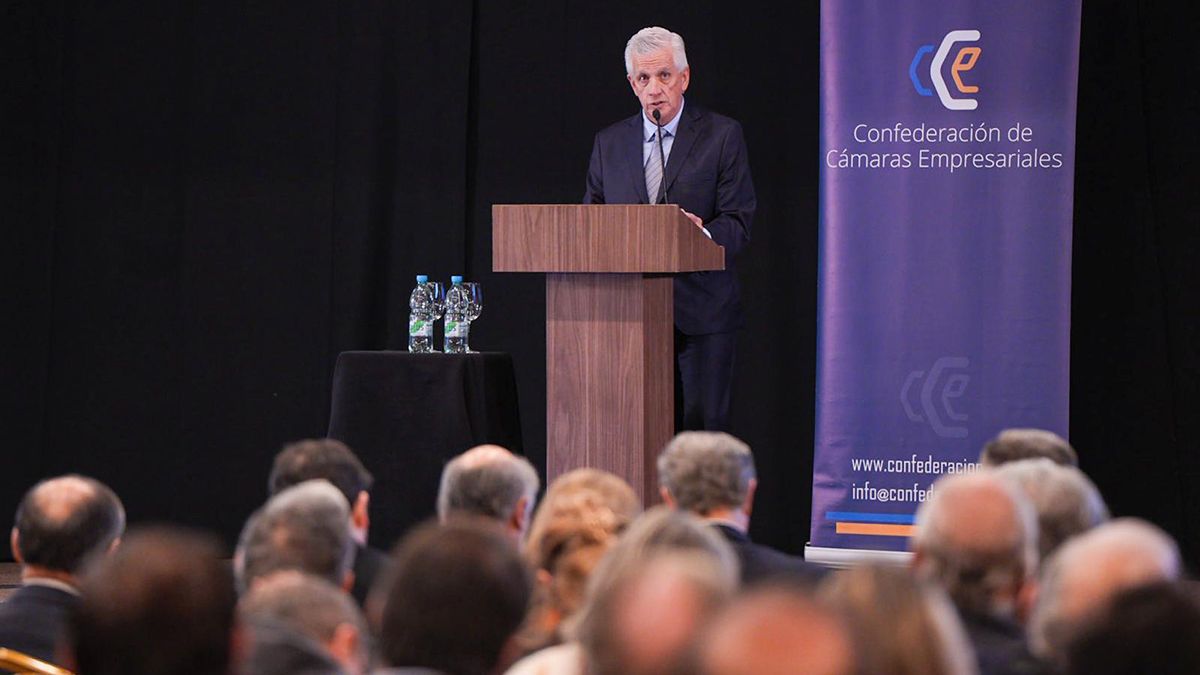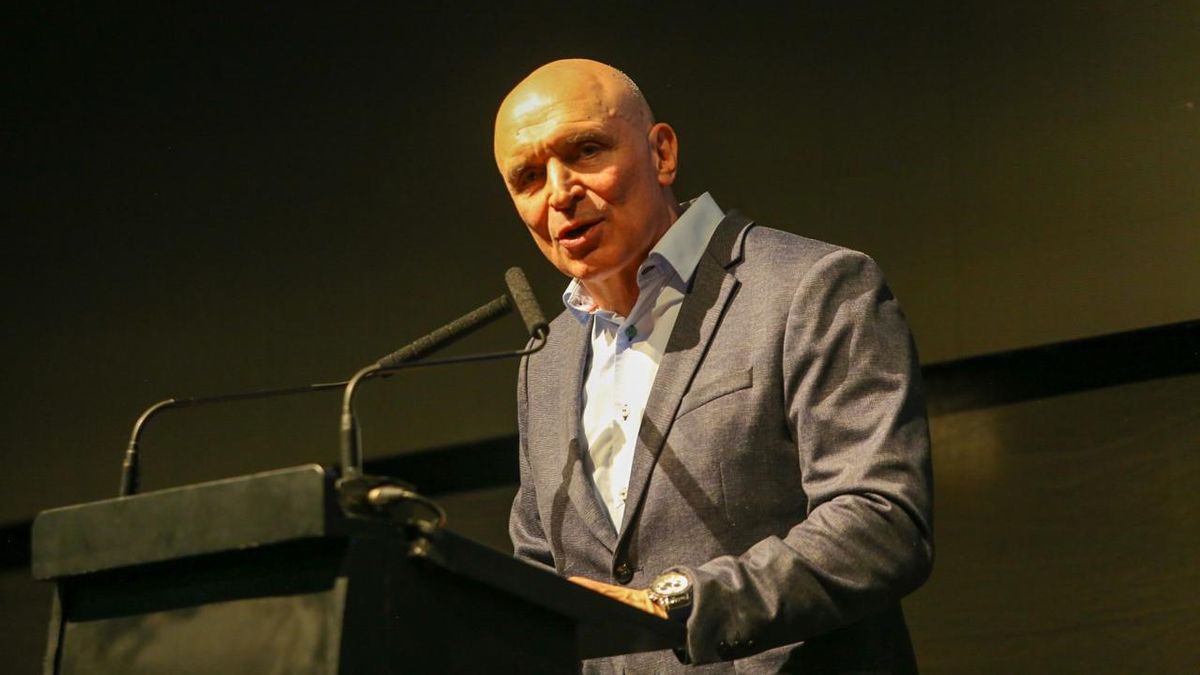“It is a document agreed upon by 29 business chambers representing the sectors and has a structure basically of four chapters, where the first chapter is internal to the business sector of the duties on the challenges we have to grow and promote the growth of the country by increasing productivity,” explained president and spokesperson of the Confederation, Diego O’Neill.
“The second chapter is oriented to the need to have a State that is less burdensome for the taxpayer and for companies. This fundamentally involves public spending, the need to reduce it to reduce the fiscal deficit, what is behind several of the problems that we have, such as the exchange rate delay and high internal costs,” he continued.
Along these lines, he said: “Then there is a chapter on international insertion of foreign trade, where the crossroads at which we are is raised, in short, a need to be able to get out of the corset that the regional agreement is representing for us, but without leaving to consider the importance of Mercosur today for that product.
“There is a need to discuss the issue in depth, at a broad level and reach national consensus to be able to adopt insertion strategies both in Mercosur and outside of it,” he pointed out in this regard before adding: “Finally, a chapter dedicated to education and labor representation, which for us is a central issue for the country of the future, but also because it is an issue of equality, equity, generating opportunities and inclusion.
Business Confederation.jpeg
State reduction and public security
On this point, considered key in the document, O’Neill stated that “between the Census From 2011 to 2023 there was no increase in population, but public officials increased by 15%, more than 38,000 officials were added in that period. So, we say, well, it seems quite obvious that it is very difficult for the country to sustain this ratio of having one public job for every 11 inhabitants.
In this regard, the president of the chamber considered that “the business sector finds it key to reduce violence because it affects the population in general, but it also affects commercial and business activities.” “The sector is already collaborating, for example, in the labor reintegration of those released, and surely there are other areas where it can collaborate,” he added.
“I think it is imperative (to address) the issue of the new form of criminality, organized crime, insecurity, philosophy as a country, I believe that we must go down a path of seeking consensus to work with a State policy, in the short term. medium and long term, because it undoubtedly requires an effort from the entire system,” said the leader.
O’Neill He expressed that the business chambers hope that these proposals are seriously considered by the political parties within the framework of the electoral contest. “We are convinced that these initiatives are relevant to the shared objective of a Uruguay more prosperous and with a better quality of life for its people,” he stated.
Favorable reaction among pre-candidates
One of the pre-candidates who participated in the presentation was the Colorado Gabriel Gurmendezwho said to Ambit that the document “is a contribution to the most important agenda that the Uruguay for the coming years, which is economic takeoff and the generation of job opportunities and well-being for people.
“He Uruguay will be able to provide solutions both in the generation of employment, as well as solutions for the most important issues that socially concern society, if we are able to resolve the central issue of the country’s competitiveness, of allowing our products and our services to be can sell in the world, that we really come out with adequate prices. We must lower the costs of living for people and we must lower the production costs of the Uruguay“, he stated. “We have a number of points in common regarding this document,” concluded the Colorado candidate.
For his part, he also presidential candidate of the Colorado Party (PC), Robert Silva, valued it as a “very good contribution” with which his Crece sector is “in great harmony.” “The country needs a commitment to science, technology and education,” he continued.
“I am very happy that support for educational transformation is expressly expressed as a lever of development, as a locomotive of progress, a line in which we want to continue with science, with technology, with market opening, with greater and better investment to generate employment for quality and safe work for people,” Silva highlighted.
Finally, the presidential candidate of the Independent Party (PI), Pablo Miereshighlighted “the last chapter where an analysis of the business reality itself is made, posing challenges and the need for changes in the sector itself, which is not common in general in these documents, it seems that this speaks well of the perspective it intends,” he pointed.
“There are very great coincidences in the need to reform the State to grow, that it is necessary to build a policy of international insertion that necessarily also implies reviewing the relationship with Mercosur, knowing that no one is considering leaving, but that it cannot be an obstacle. I also want to highlight a very important perspective on the need to generate a greater link between education and work,” he pointed out.
Source: Ambito




